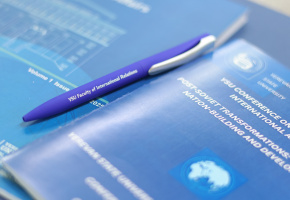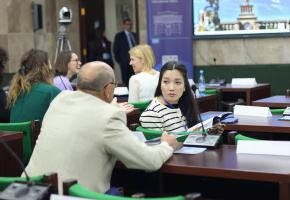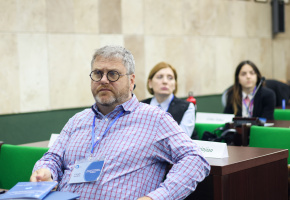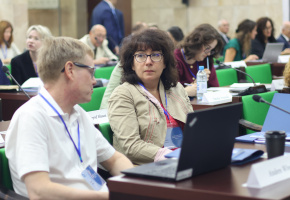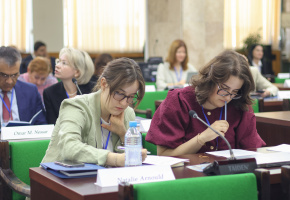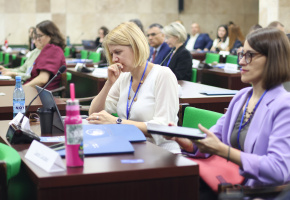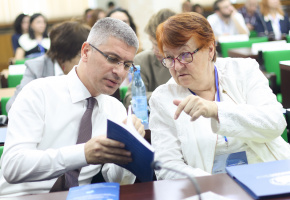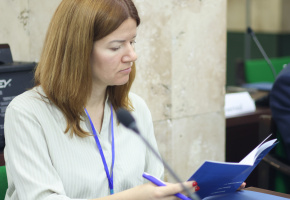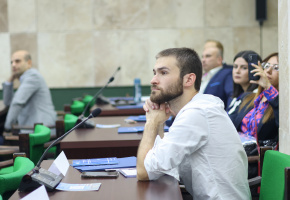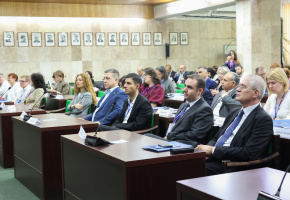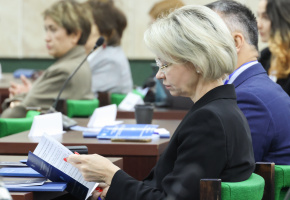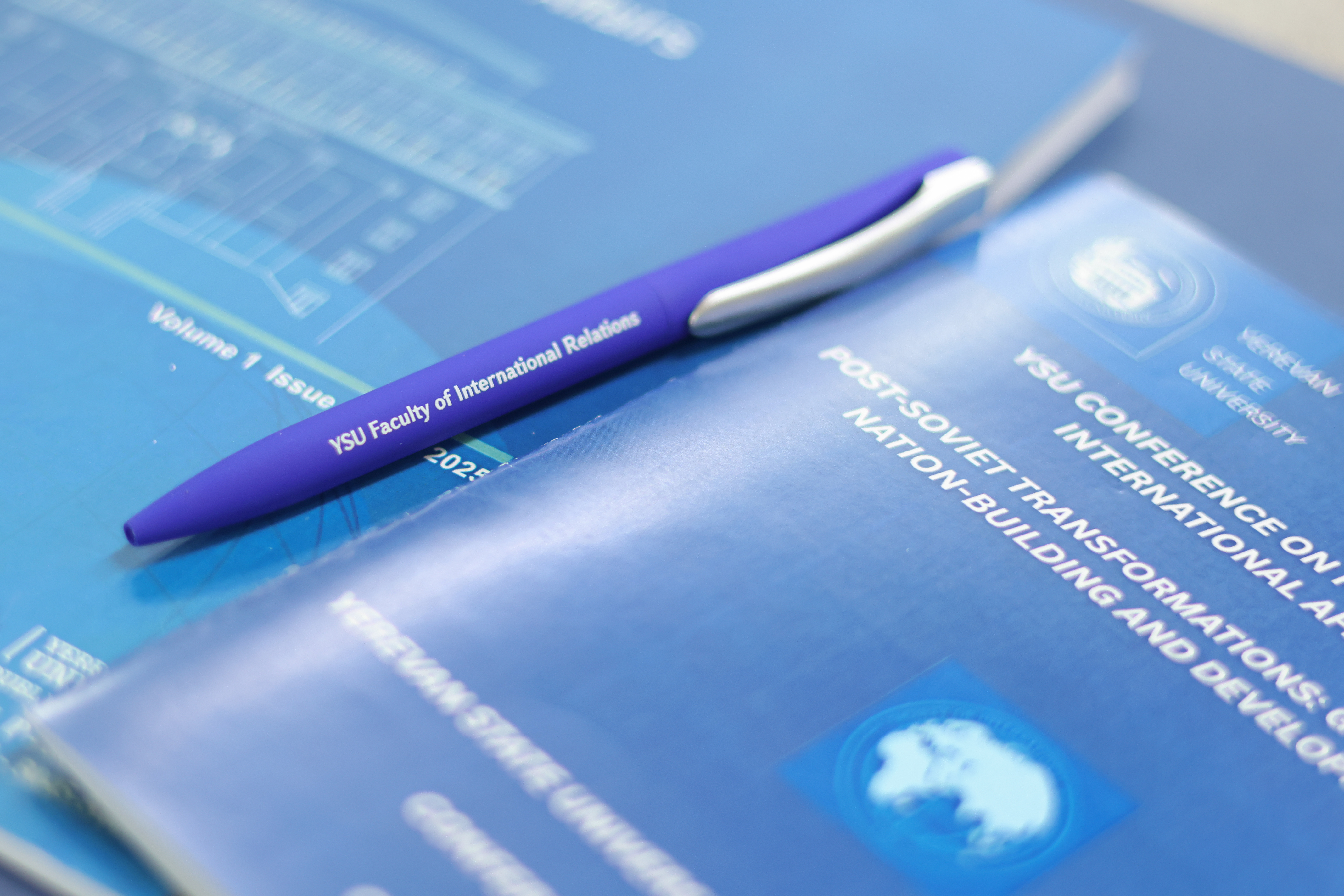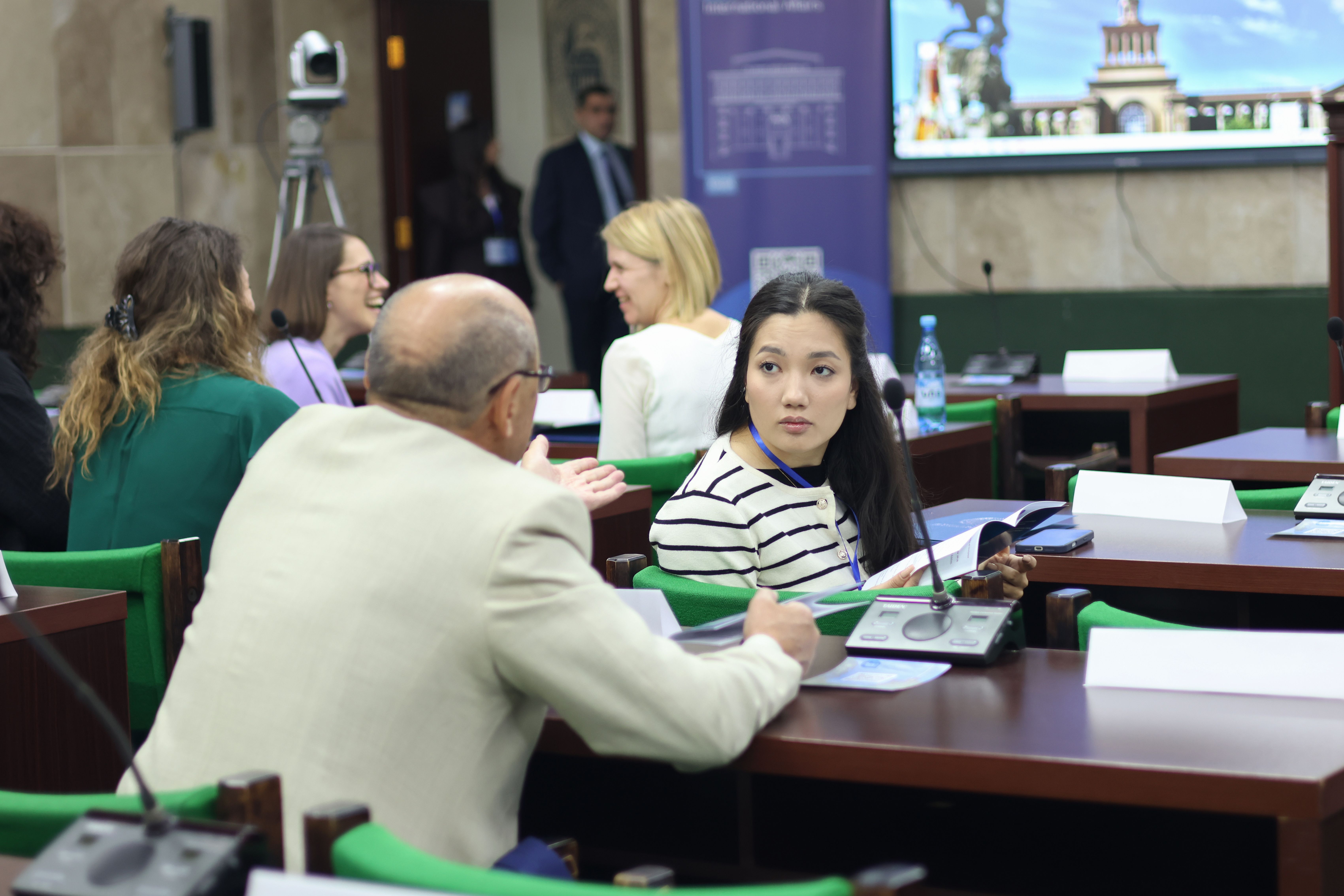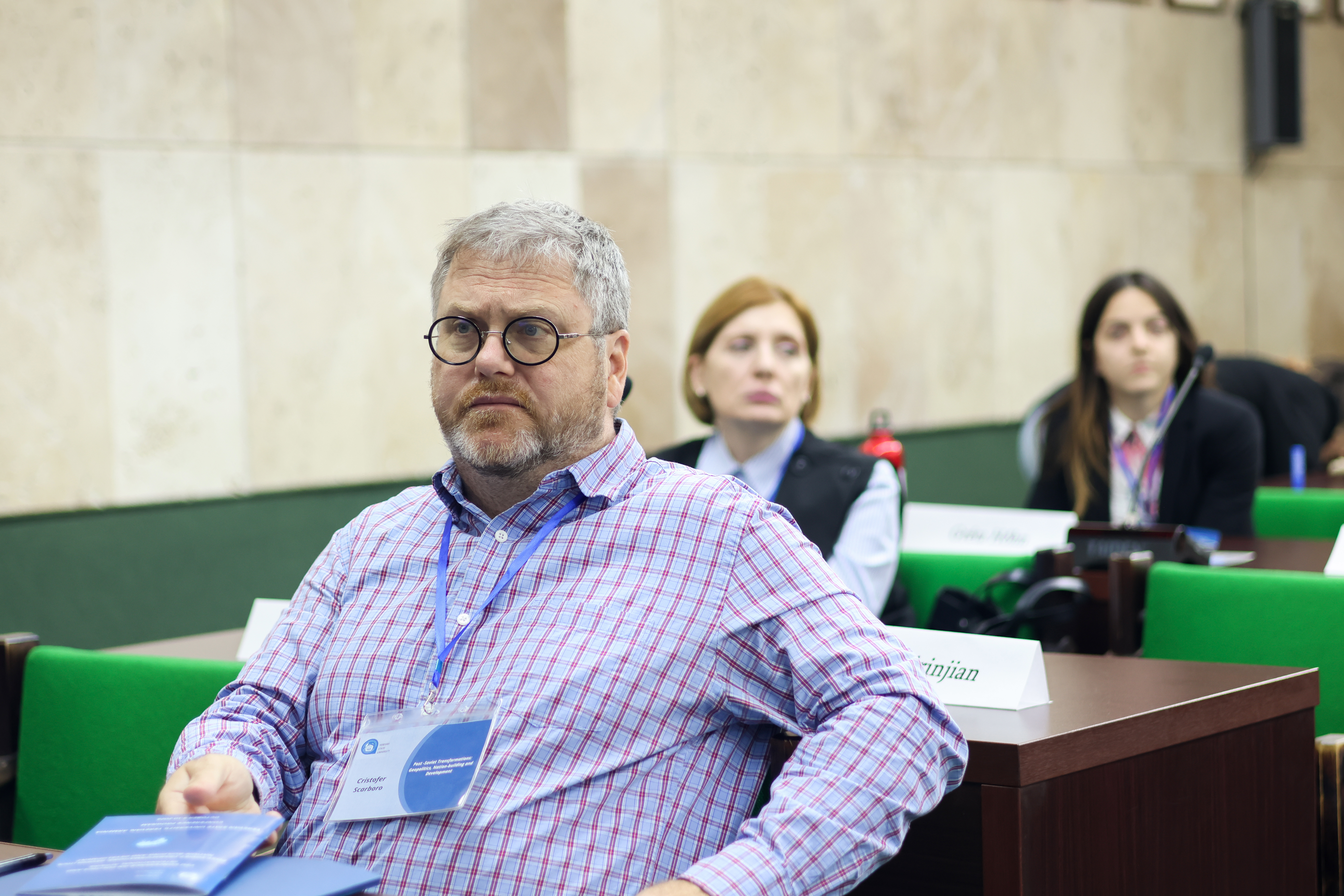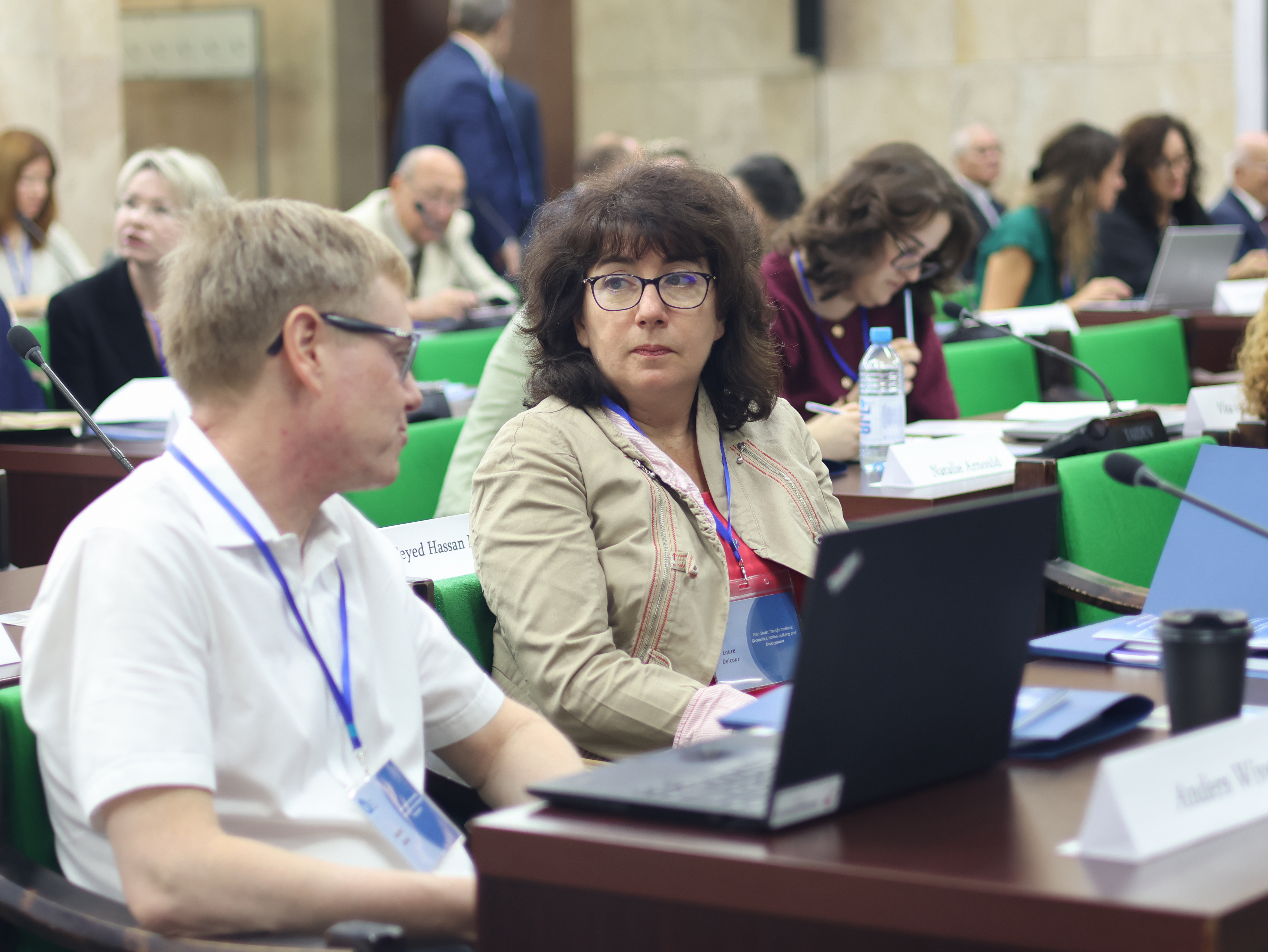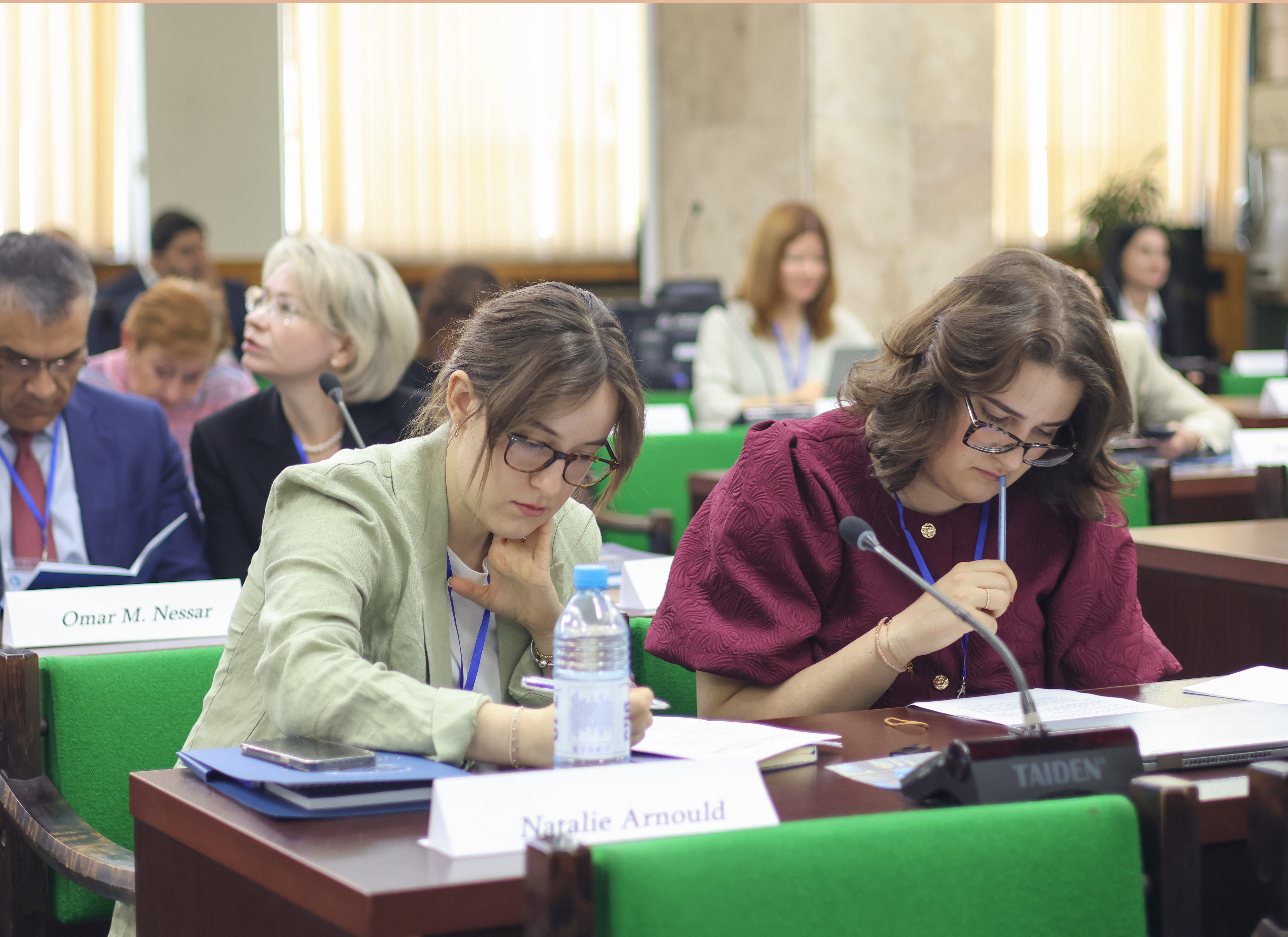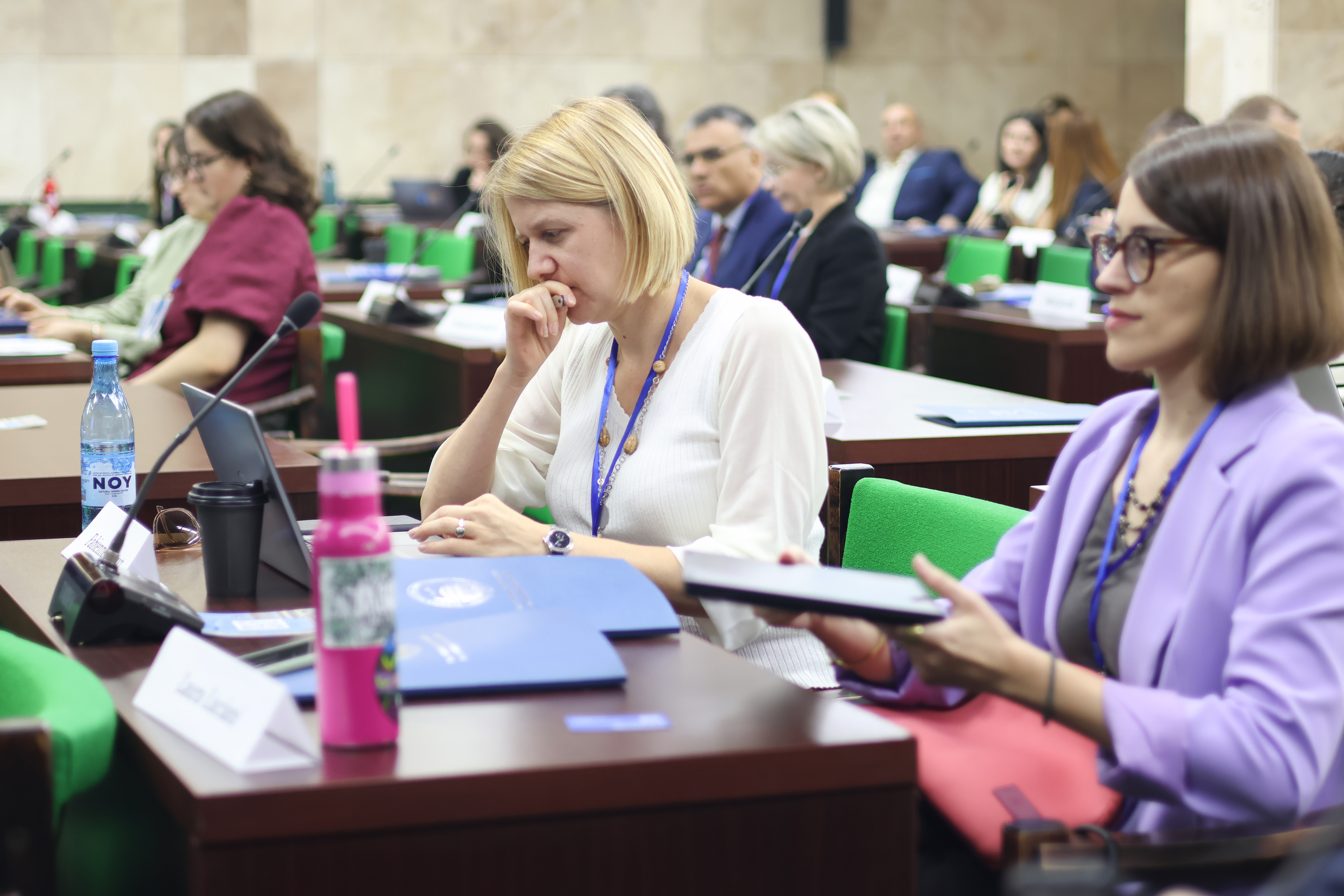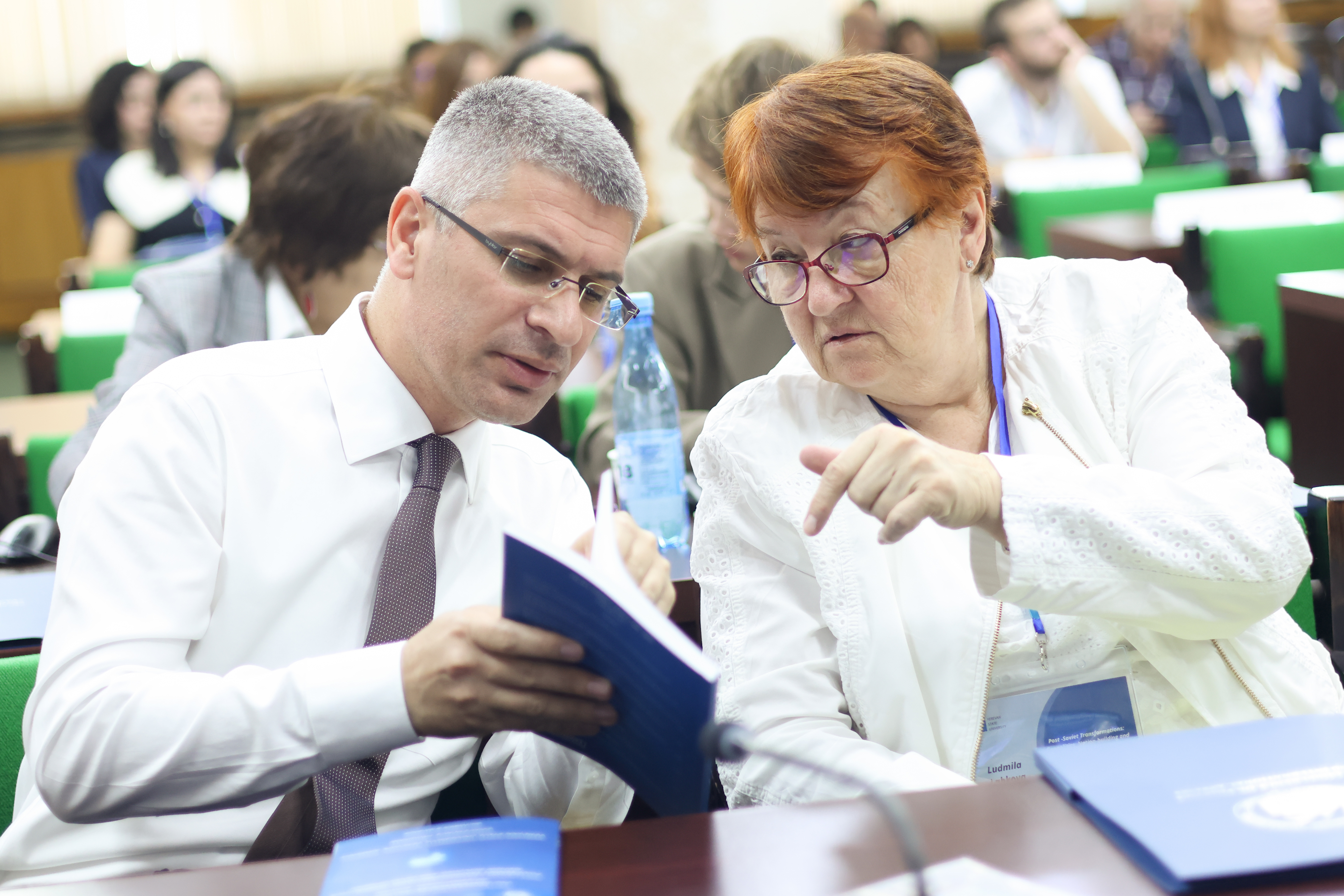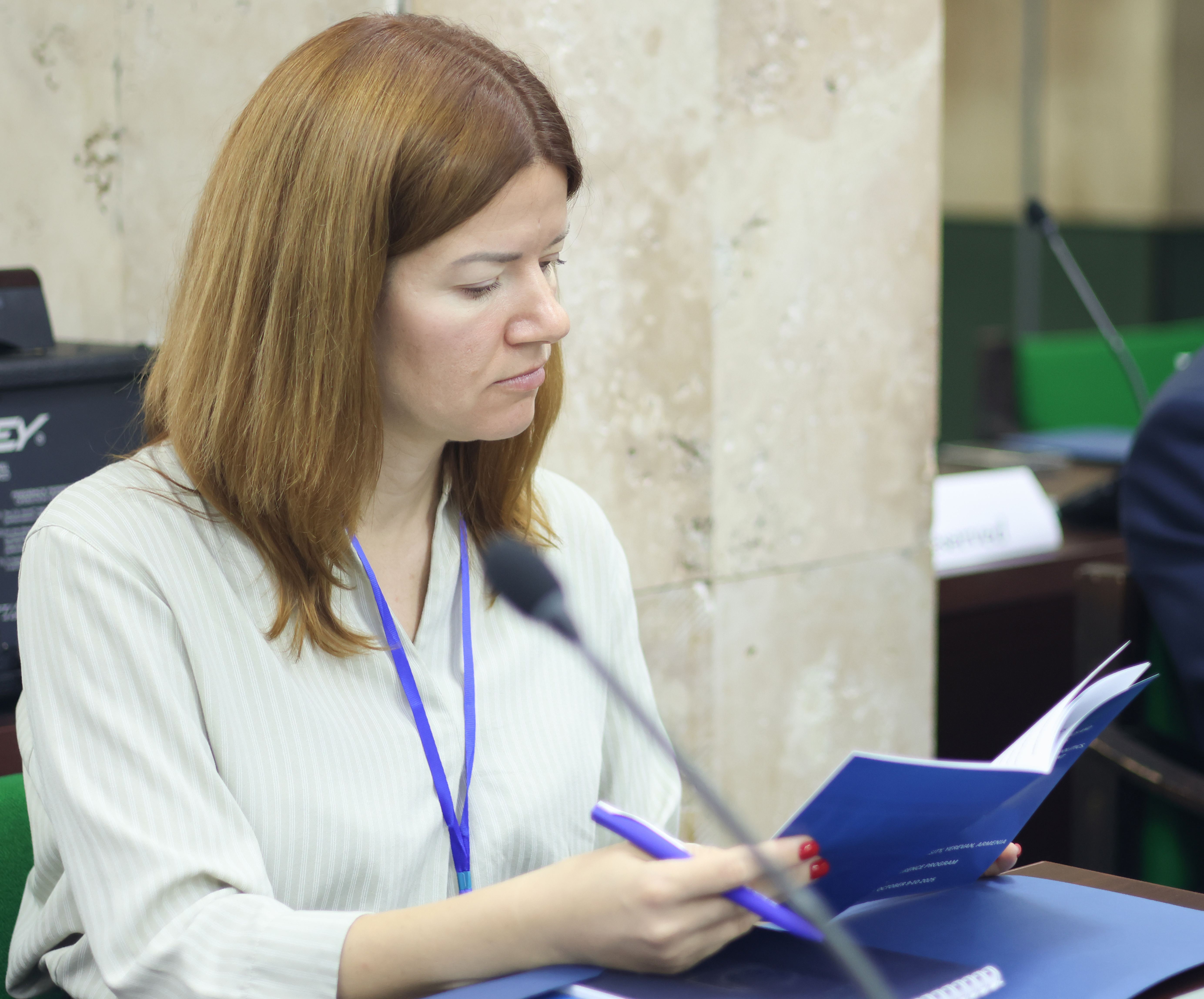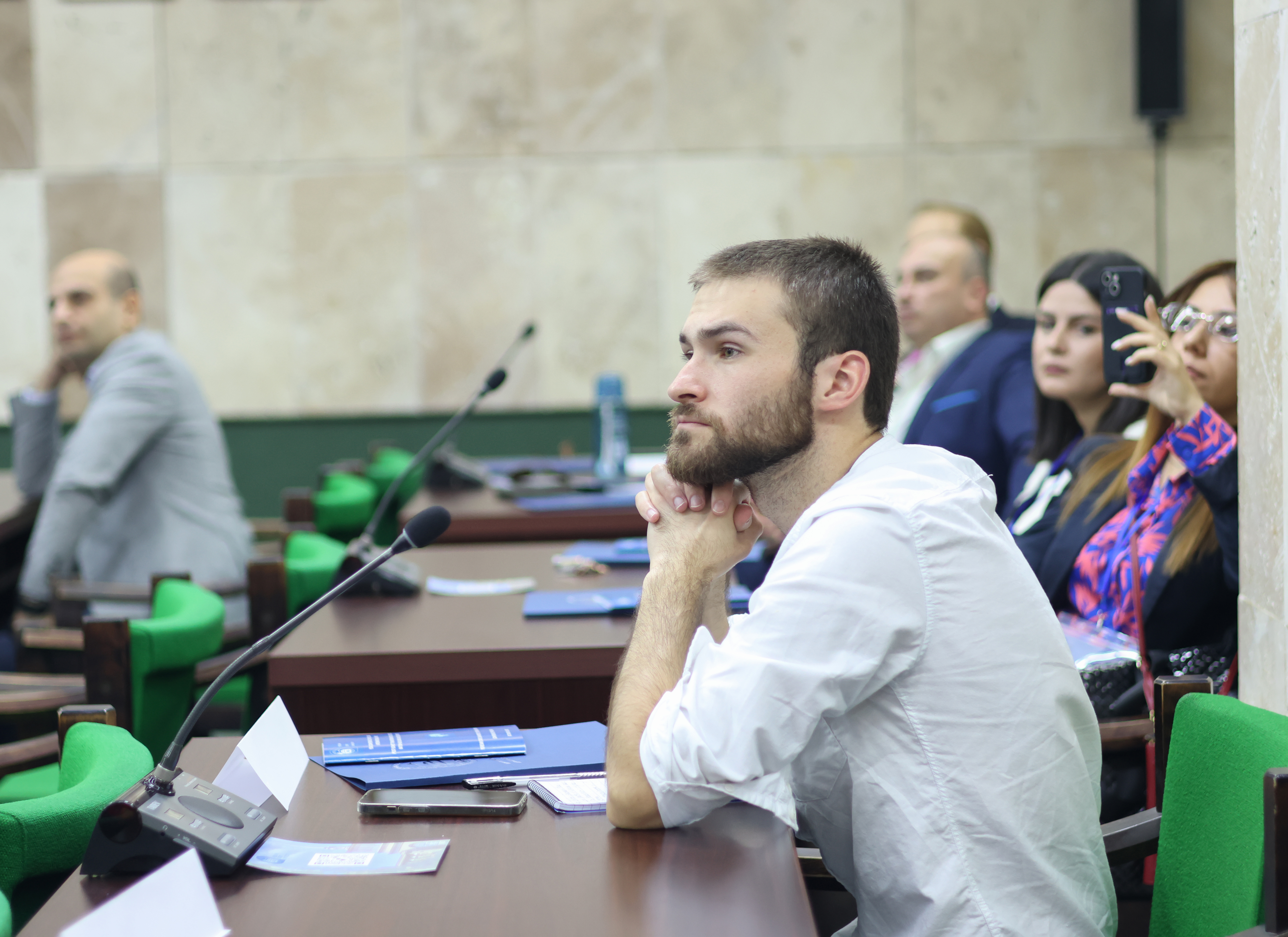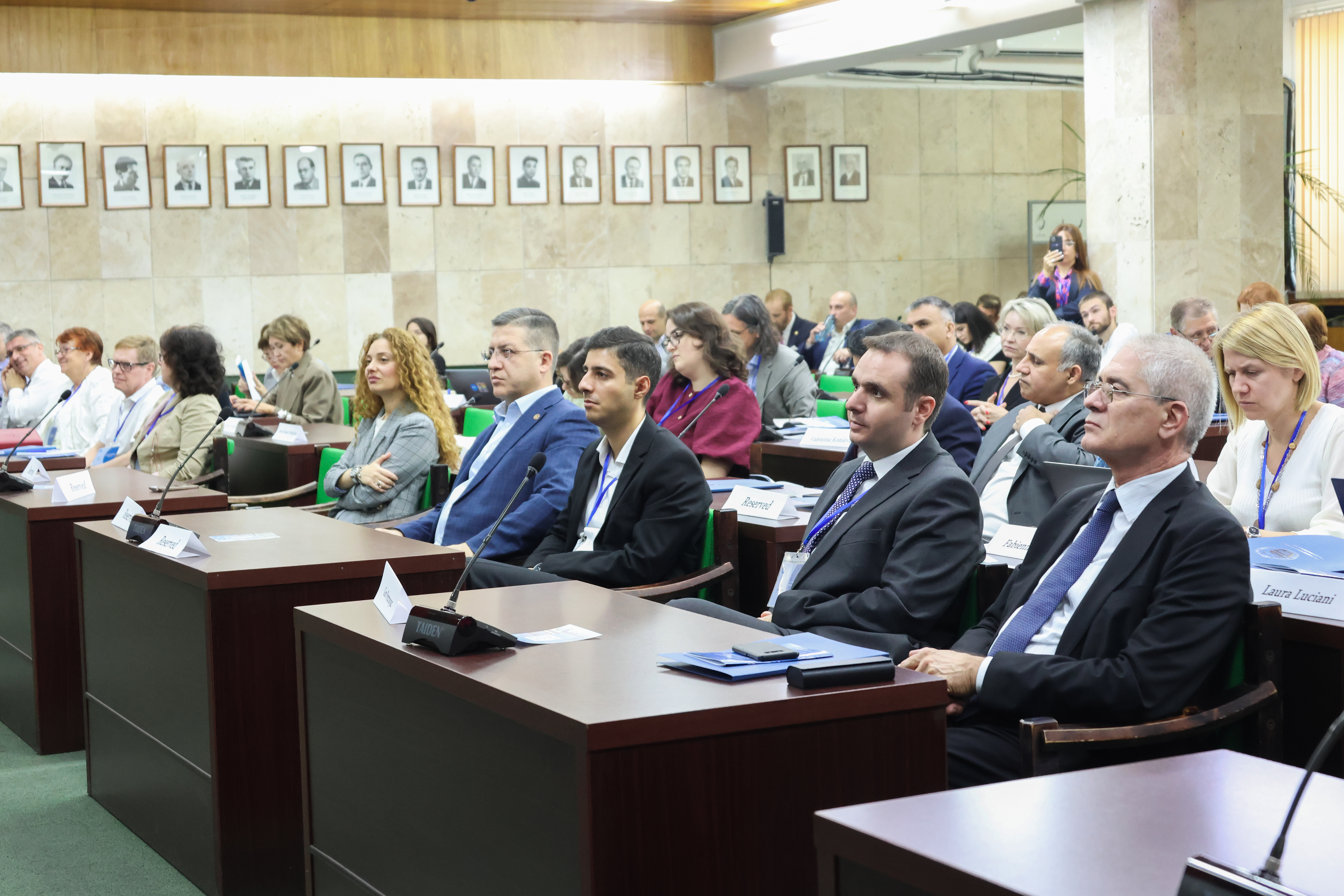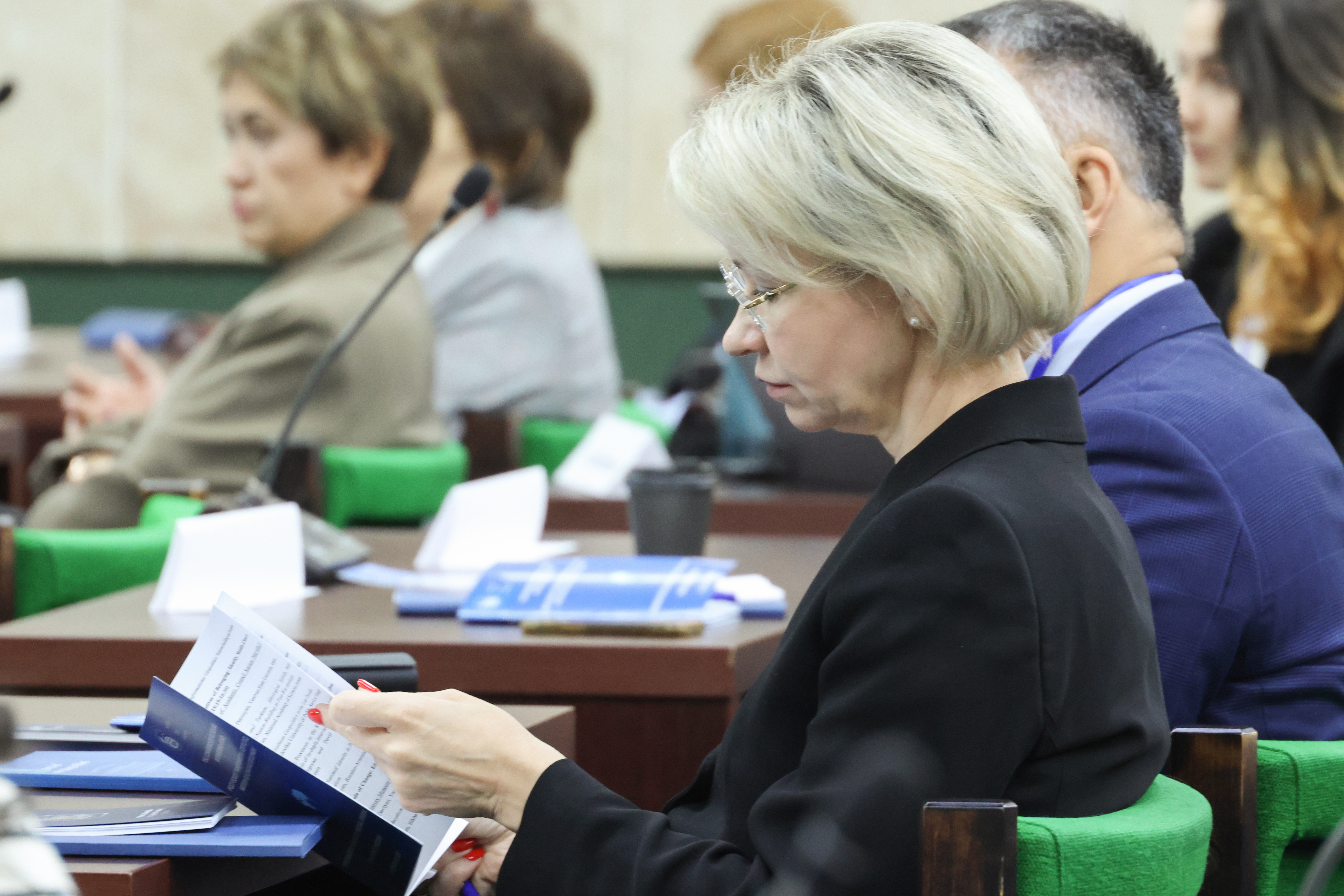October 09, 2025 | 14:40
Conferences
International cooperation
Events
International conference addressing geopolitical developments from academic perspective commences at YSU
Initiated by the Faculty of International Relations, Yerevan State University has launched the international conference titled "Post-Soviet Transformations: Geopolitics, Nation-Building, and Development." The two-day conference features presentations from researchers representing 20 countries, addressing a range of topics including Armenia’s foreign policy developments, post-Soviet geopolitical transformations, and the role of logistics in international relations, while also showcasing examples from various other nations.
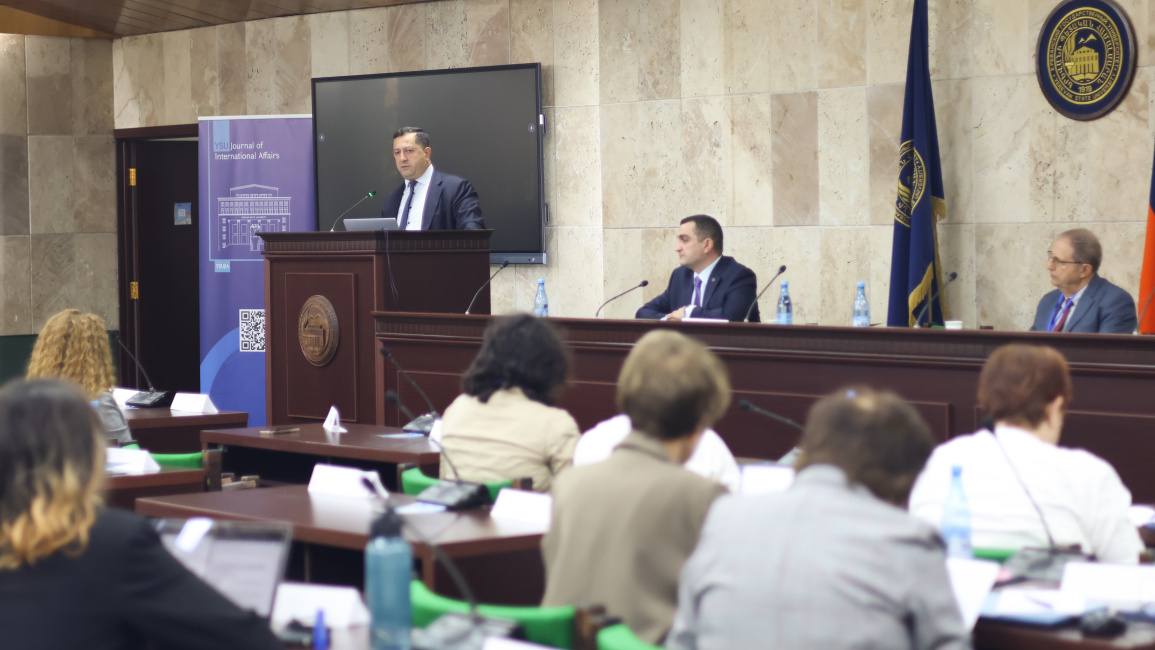
The international conference was organized with the support of the MoESCS Higher Education and Science Committee.
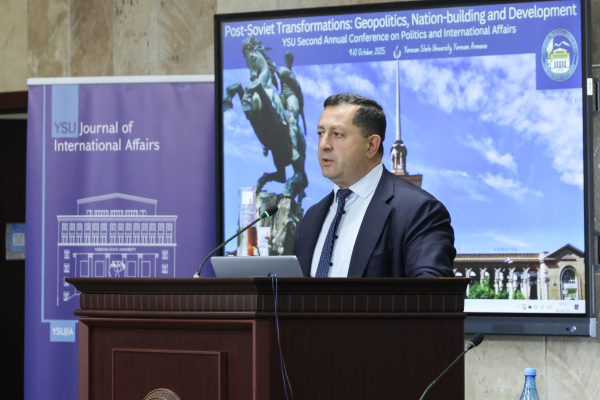
Yerevan State University (YSU) Rector Hovhannes Hovhannisyan, emphasizing the importance of discussions involving foreign scholars and the presentation of diverse viewpoints, stated, "This broad-themed conference allows us to discuss a variety of topics and issues, given that experts from 20 different countries have gathered here, each bringing diverse perspectives. Yerevan State University serves as a platform where these different viewpoints come together and are discussed through an academic lens. This process not only enriches the university itself but also allows for the consideration of publishing new articles in both our national and international journals."
The rector highlighted that significant geopolitical developments are currently taking place not only in Armenia but also in our region, with peacebuilding firmly on the agenda, specifically how peace should be achieved. "I am sure that we will have fruitful discussions, as these are crucial within academic circles not only for the educational sector but also for policymaking. I hope the outcomes of this conference will be applicable not only in academia but also in policymaking processes."
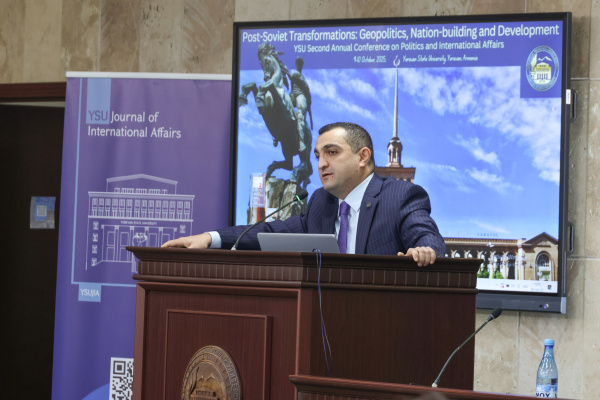
Dean of the Faculty of International Relations Tigran Yepremyan stressed that we are living in a period when the geopolitical visage of Eurasia is undergoing fundamental transformation: "It is important to focus on the core driving forces of these changes—the fundamental institutions of the international society and Eurasian geopolitics. In this context, it is also very important to examine nation-building processes, as well as the definition and redefinition of nationhood."
He expressed gratitude to nearly 50 professors who arrived from abroad, whose presentations will allow the audience to hear the perspectives of their respective countries on the topics under discussion.
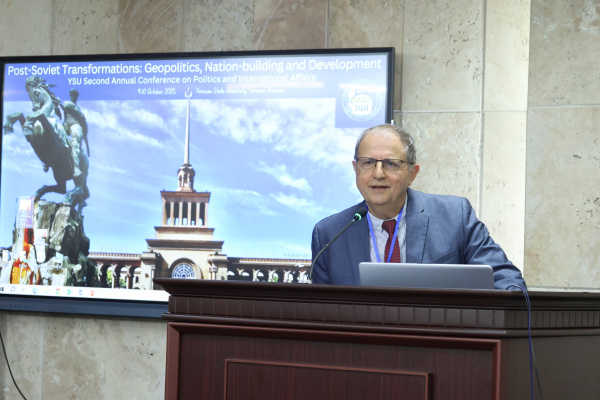
Professor Rouben Azizian from Massey University in New Zealand, presenting his viewpoint on the post-Soviet term, noted that it needs to be reconsidered in today’s context: "For some, 'post-Soviet' simply refers to the former member states of the USSR. But is it merely a geographical term? I do not believe so. For some, it is not only the former USSR states but also post-communist, post-authoritarian, or those formerly under Russian influence. When we examine post-Soviet situation today, we see more gaps, dichotomy, and diversity in the political systems and foreign policy priorities of member states. Therefore, to understand today’s reality and reassess the idea of 'post-Soviet,' we need to consider the situation in a broader context."
He emphasized that it is common to say that we live in an uncertain and complex world: "I think experts have been saying the same thing every hundred years. However, I believe it is especially challenging for small states to navigate this new complexity. I am truly surprised at how Armenia, despite being such a small, landlocked country surrounded by many neighbors—some of whom are not very friendly—not only manages to survive but also promotes many bold and ambitious ideas and initiatives. Thus, I am here to learn more."
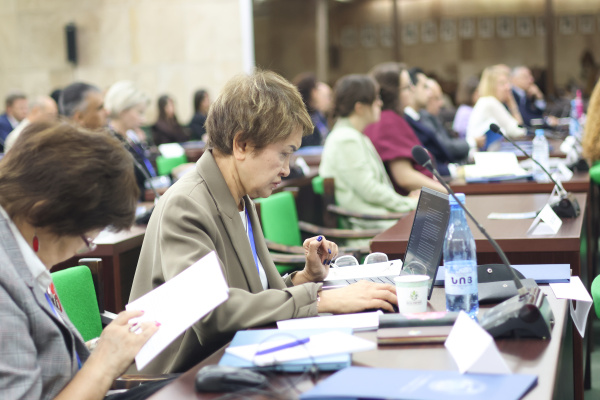
Researchers from universities in Ghent, Copenhagen, Massey, Georgetown, and California, as well as from research institutes in Iran, Spain, Hungary, Georgia, Russia, Belgium, Italy, France, Slovakia, the Netherlands, Poland, Kazakhstan, and other countries, delivered presentations at the conference. Armenian scholars represented YSU, the Armenian National Academy of Sciences, and the Russian-Armenian University.
The presentations covered topics including the reassessment of the security order in post-Soviet Eurasia, the main factors determining strategic relations between Azerbaijan and Pakistan, the role of the Armenian Apostolic Church in post-Soviet Georgia, Armenian-Azerbaijani relations following the 2020 war in light of Turkish-Iranian regional competitive politics, the role of transportation and communications as factors of international relations integration (using Kazakhstan as an example), and more.
